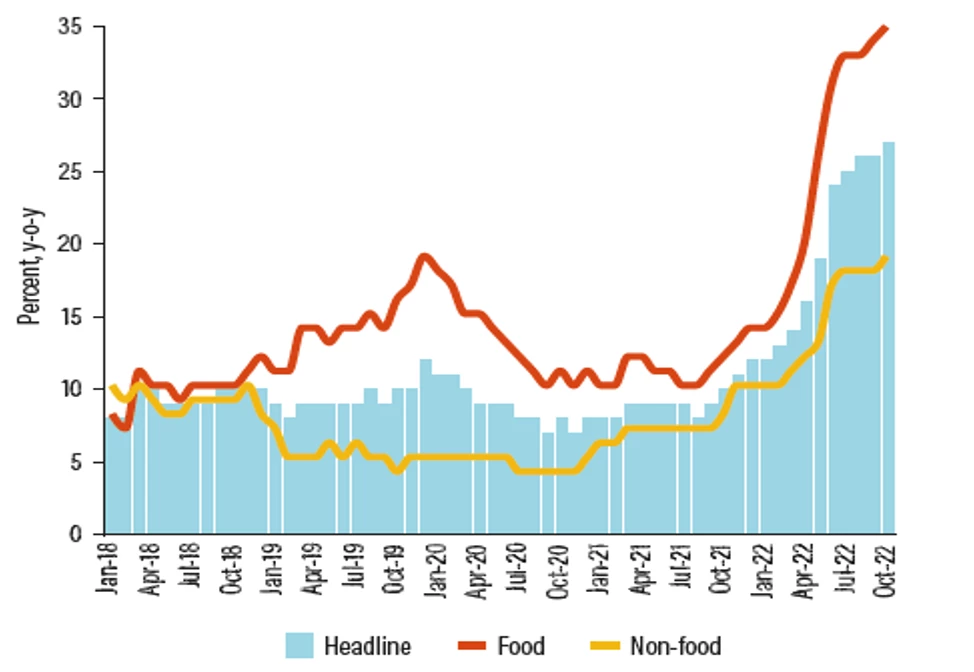 School children in masks
School children in masks
The evidence is clear: countries in every corner of the world are experiencing a learning crisis. Yet even as this is happening, there are more children in school worldwide today that at any other time in history, pandemic-related disruptions notwithstanding. In 2010, the average adult had completed 7.6 years of schooling, more than double the 3.2 years completed by the average adult in 1950. This represents a substantial achievement, but is the additional schooling leading to actual learning and human capital accumulation?
The Learning Crisis in Europe and Central Asia
Even among top performers in Europe, scores are declining. Average test scores—harmonized across assessments in the Bank’s Harmonized Learning Outcomes (HLO) data—are about the same in high-income countries in East Asia as in Europe. However, scores in the top five East Asian countries are actually increasing, while scores in European countries are declining.
From the early 2000s, the transition countries in the ECA region put a strong emphasis on improving the education provided to their populations. Some countries, such as Poland, implemented important reforms such as new curricula and restructuring the education system. However, more recently, the reform momentum has been losing steam across the region.
COVID-19 is exacerbating the learning crisis in ECA
Between March 2020 and September 2021, schools in ECA were completely closed for 64 days and partially closed for 77 days on average. Most students in the region lost the equivalent of at least 1/3 of the school year. These closures and interruptions have intensified a learning crisis that was already growing. In robust surveys carried out in the region , 11 out of 12 countries have reported learning losses among their students that are equivalent to almost a year’s worth of learning. Learning lags among disadvantaged students from poor socioeconomic, rural, and minority backgrounds and among students with disabilities. Provision of education services to these students, has already been a challenge for many education systems in ECA, but the closures have worsened the situation. Also, since the Russian invasion of Ukraine and the influx of refugees into neighboring countries, the educational needs of these refugee children need to be adequately met in their host countries.
The World Bank’s Learning Recovery Plan for ECA
The plan consists of three stages:
- Creating programs to compensate for the learning time lost and to prevent future learning losses.
- Ensuring continuity in reopened schools by focusing on foundational skills (numeracy, literacy, and socioemotional skills) to help reduce learning losses, particularly among disadvantaged students.
- Accelerating learning by making schools more resilient and equitable through educational innovations and evaluation.
As schools struggle to get back to pre-pandemic normality, countries need to adapt their curricula and expand compensatory programs in to address the challenge of learning loss. Based on international experience, there are three critical actions to be taken in this second stage:
- Simplifying the curriculum to prioritize foundational skills such as numeracy, literacy, and socioemotional skills.
- Implementing standardized tests to identify the learning level of each student.
- Implementing compensatory policies targeted mostly to disadvantaged students.
The key to ensuring the success of the learning recovery plan is to invest in the welfare, training, and performance of teachers. Extensive research has shown the positive correlation between teacher quality and student achievement. Moreover, teachers can have a considerable influence over parents’ belief in the importance of education and their trust in their children’s schools.
While many EU countries in ECA have reported having incurred learning losses and are conducting ongoing research on this issue, there is a lack of information on learning losses in the World Bank’s client countries in the region. Historically, too much emphasis has been put on high-stakes examinations and not enough on formative assessments. Moreover, in 2020, many ECA countries chose to cancel or postpone their national examinations to ensure a smoother transition between education levels for all students, especially for those at risk. Thus, it may take many months—if not years—to build up a complete picture of the learning losses in the region.
ECA countries have coped with the pandemic by rapidly implementing remedial and compensatory programs aimed at recovering learning, retaining students in school, and ensuring the safety of students and teachers. However, the pandemic is lasting longer than predicted and, in the process, has become an opportunity to introduce structural reforms into the region’s education systems.
To this end, the following policies are recommended to transform the way in which education is provided and thus improve learning and increase learning equity in the long term:
- Provide high-quality, school-based tutoring programs, including enrichment programs, targeted to students based on an assessment of needs as a way to enable them to catch up on lost learning over time.
- Implement an improved hybrid learning model (using technology and learning modules) to ensure the quality, equity, and efficiency of education for all students.
For more see Learning Recovery after COVID-19 in Europe and Central Asia: Policy and Practice and Learning Recovery after COVID-19 in Europe and Central Asia Policy and Practice Brief.





Join the Conversation